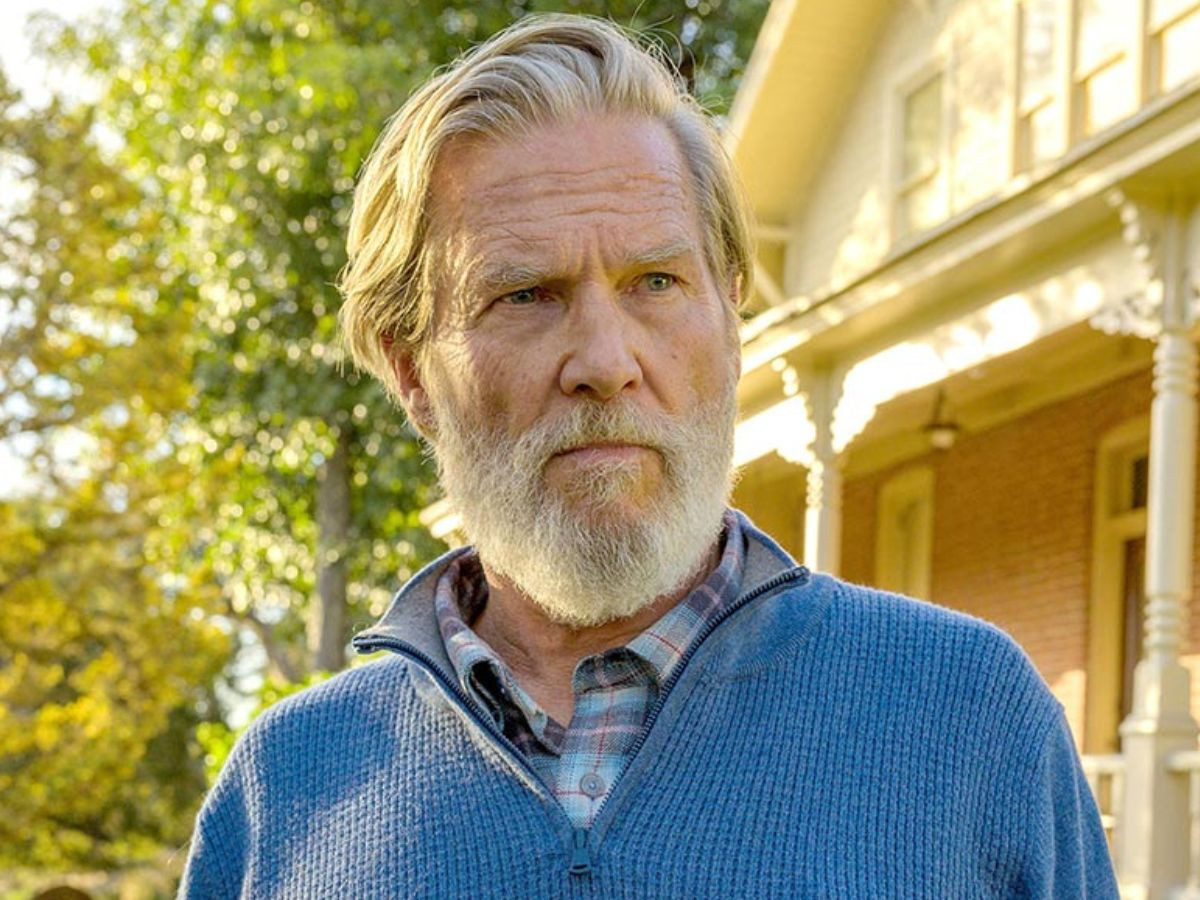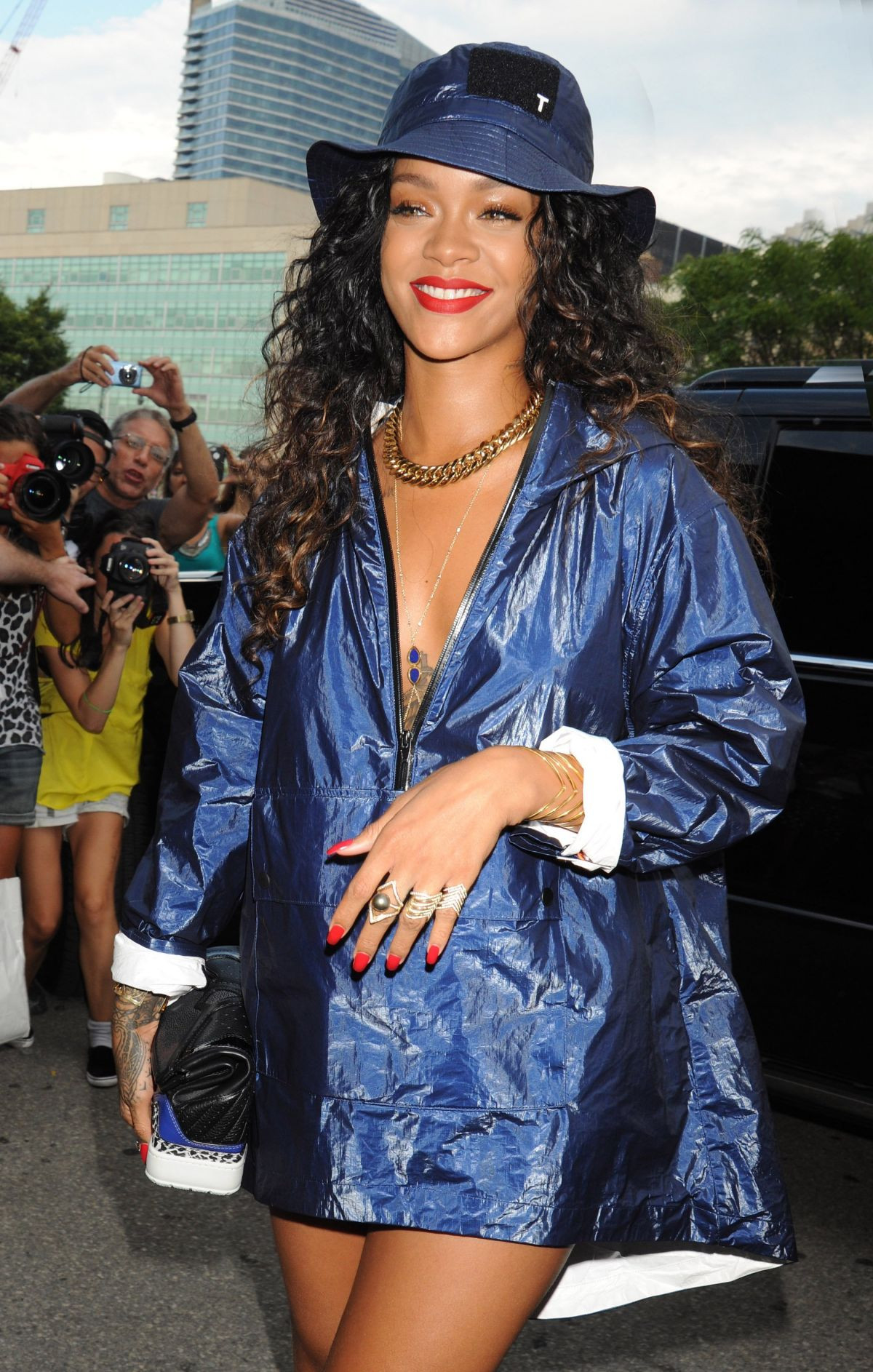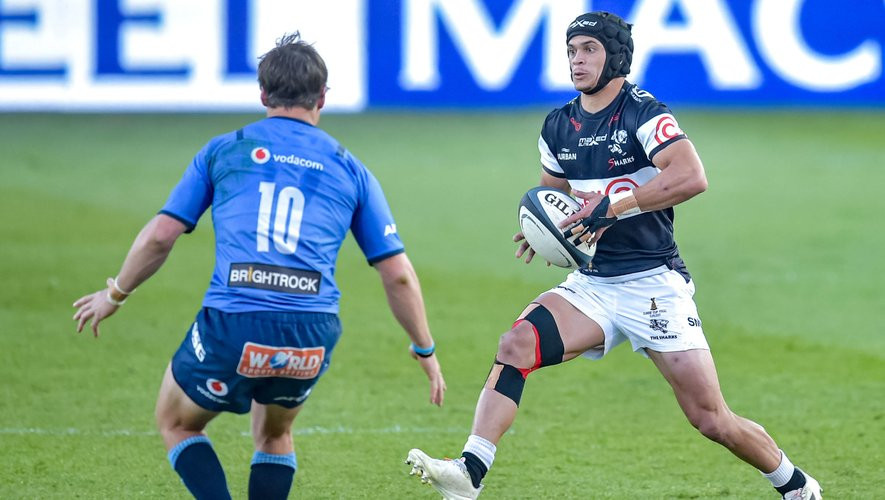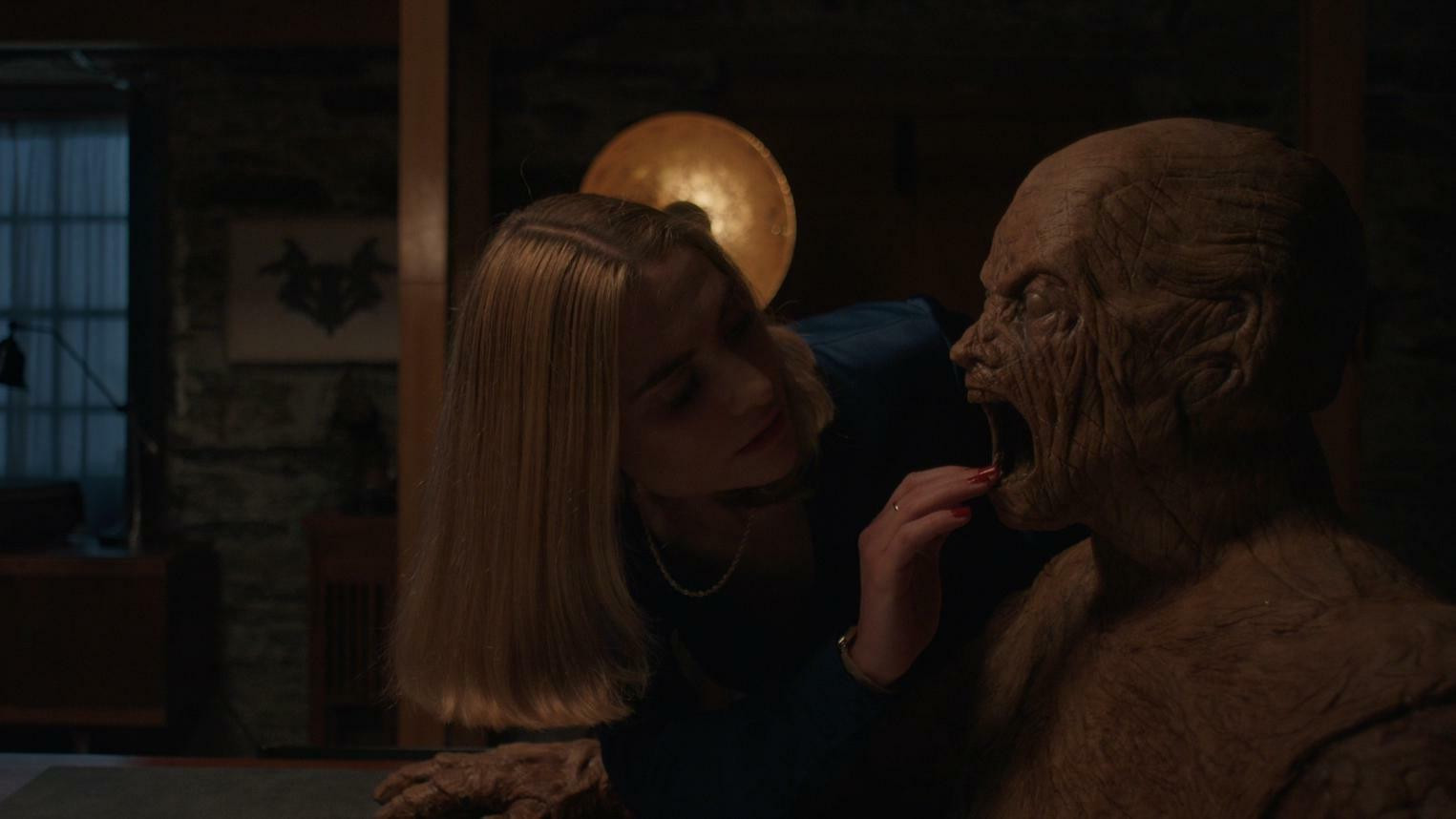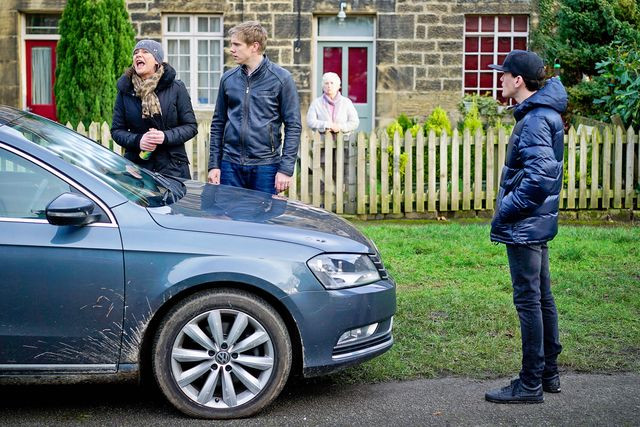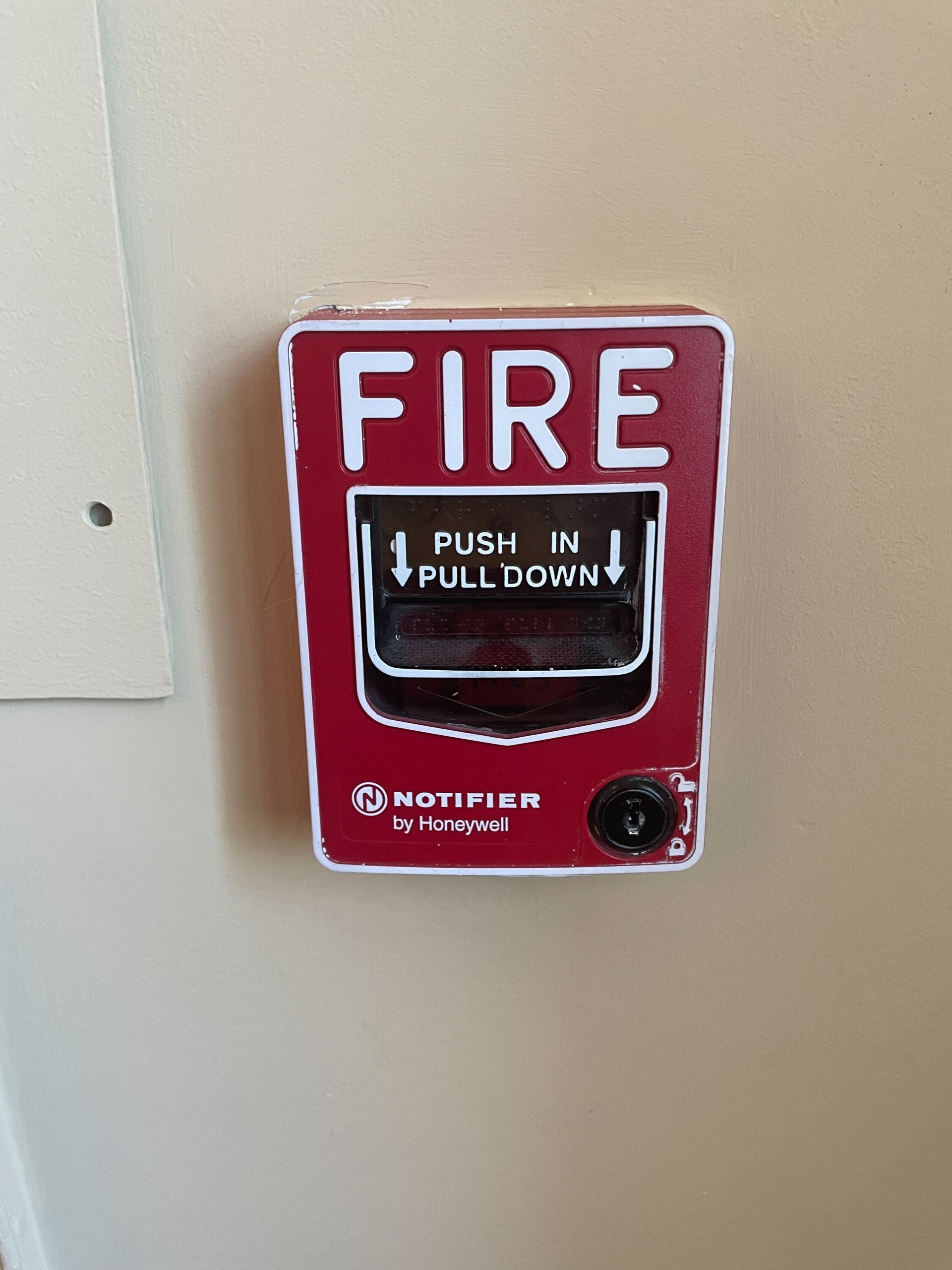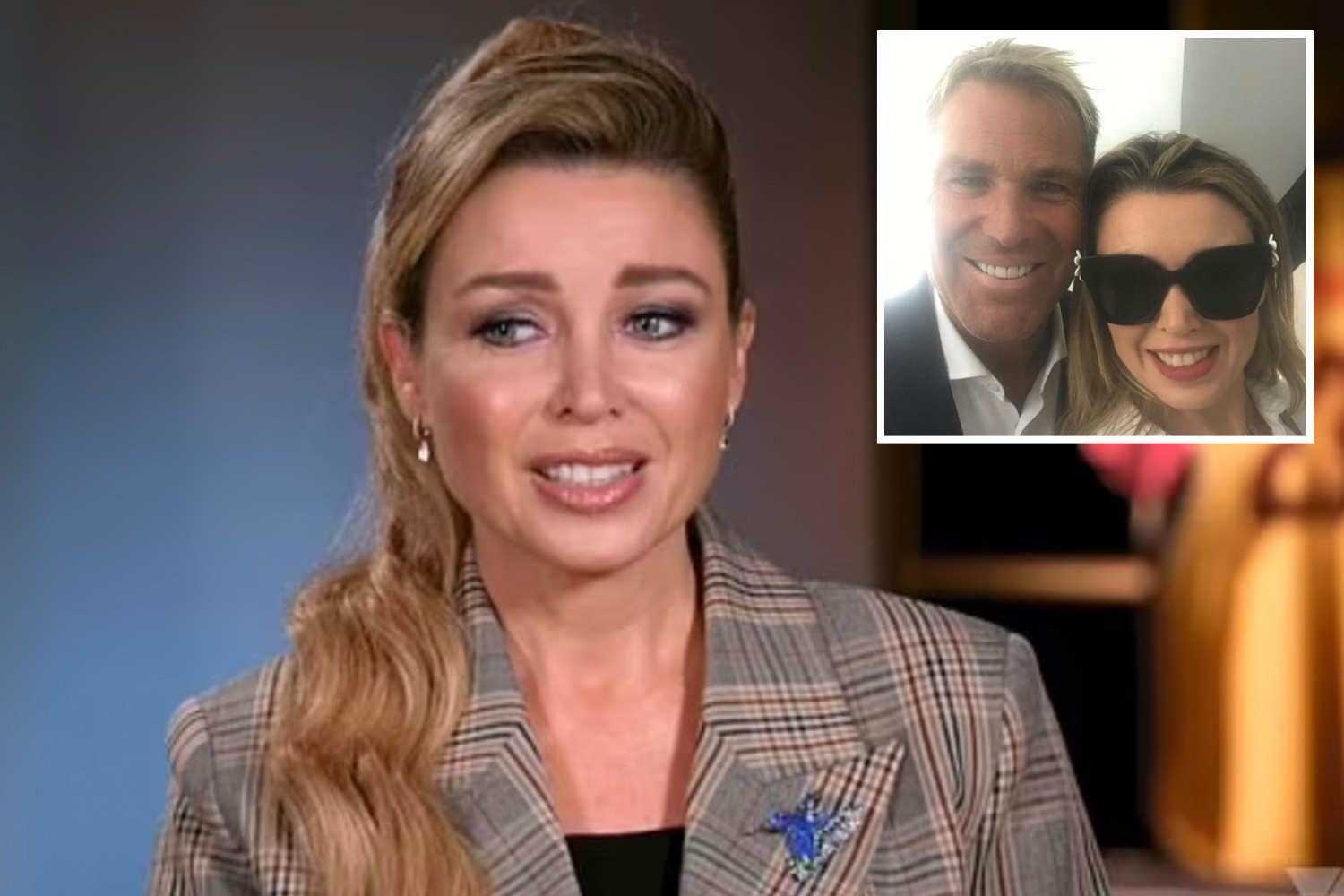On FX’s series The Old Man, Jeff Bridges and John Lithgow play frenemies of a sort – men who worked together and clashed in the intelligence world, eventually compelled to join forces. But in real life, watching the two actors trade quips and stories sitting next to each other, the chemistry of their friendship is palpable – especially when Bridges describes how a cancer diagnosis and COVID left him wondering if he might live long enough to finish filming the show’s first season a few years ago.
“I didn’t think I was going to make it,” Bridges says, his trademark, light-hearted attitude growing serious for a moment. “Slowly but surely, I put little goals in front of myself… it was a big goal walking my daughter Hayley down the wedding aisle [in 2022]…I kind of trained like it was almost a sporting event.”
Lithgow says Bridges’ email updates during that time weren’t so encouraging. But he always had faith his co-star would find a way back.
“Something in me thought, well, this show is exactly what he needs,” Lithgow adds. “He needs that ‘hay in the stable.’ He needs something to really work for and fight for, because he really loves this show.”
Lithgow also admits a slightly selfish reason for wanting to see Bridges return to finish work on the first season and tackle a second one. “If you recall, he and I barely got to work together [in the first season],” Lithgow says. “I thought, ‘Dammit Bridges, you’re going to get back here and you’re going to act with me. You’re the reason I wanted to do this show.’”
Indeed, the show’s second season is something of an oddball, buddy drama, in which Bridges’ Dan Chase – a retired CIA operative – finds an old ally-turned-adversary has kidnapped his adult daughter, Emily, played by Alia Shawkat.
Chase is forced to team up with Lithgow’s former FBI deputy director Harold Harper, who once mentored Emily – even though Harper tried to chase down and kill Chase in the first season. These uneasy allies travel to Afghanistan to rescue Emily, forced to confront their own troubled histories with each other and her.
“What comes to my mind is love,” Bridges says. “You think of fathers loving their daughters. Love isn’t all cupcakes and valentines and stuff. There’s a dark side to love…interestingly woven into the story.”
Sounding like the world’s biggest theater kid, Lithgow compares Emily’s divided loyalties to storylines in the musical Mamma Mia!, while acknowledging their show features some of the most dysfunctional father figures on television.
“One of them plotted to assassinate the other, the other found out about it, acknowledged why it had to happen and basically said…let’s move on,” Lithgow says, laughing. “They both know, because they’re in this hair-raising profession, what each of them is capable of.”
Bridges sees it as a balancing act for men devoted to a cause and willing to do whatever it takes to pursue it. “You’re talking about extreme characters…To be a spy and be in this business, you have to have, on one hand ruthlessness, but on the other hand, empathy. And that’s something I think all of us can relate to. We all have egos and we all have compassion – and how we dance with the two…it’s intriguing.”
Watching Bridges navigate fight scenes in The Old Man, it’s tough to imagine he was ever ill while filming it. Chase takes on assassins and spies half his age with skill and ferocity, showing that age doesn’t necessarily equal weakness or passivity.
One reason the show resonates differently: while each of their characters could be considered the titular “Old Man” – characters struggling with regret, aging, fatherhood and family in different ways – in real life, Bridges and Lithgow also seem to embody the freedom and challenges some performers have found by embracing their age in Hollywood.
But suggest that they might be defining how to age gracefully in show business, and Lithgow, at age 78, demurs. “You’d be surprised how little deciding is involved in an actor’s career,” he adds. “You wait for people to want you and…they have to want you for very specific reasons. Well, they have wanted me to play a bunch of old men…It turns out they need a lot of old men and there aren’t a lot of old men around.”
Over the years, Lithgow’s shown lots of range: from playing a transgender ex-football player in the Oscar-nominated film The World According to Garp to inhabiting an undercover alien in the sitcom 3rd Rock From the Sun. But more recently, he’s gained acclaim playing older figures like Winston Churchill in The Crown, Fox News’ Roger Ailes in the film Bombshell and King Lear onstage.
“You spend a lot of your career hoping people don’t notice you’re growing old, or wanting to look younger,” he says. “And now, half the parts I’ve played, I’m playing older men than I am, because I still have the strength to do it.”
At age 74, Bridges is a bit more philosophical, saying the challenges with memory that can come with aging also have an upside. “There’s a freshness to old age, like ‘How do I do this?’” he says, a bit of wonder tinging his voice. “You don’t really know what you’re capable of doing, until you’re tested. If life calls you to do it, well, let’s find out…here I go.”
And did that feeling of being tested extend to the way Bridges survived COVID and cancer? “The gift of all those things you’re afraid of that are going to happen to you…they are gifts, and you don’t realize it until you live through it,” he says, noting that he was surprised by his own reaction to the diagnosis when it was dire.
“When I was told, ‘I don’t know if you’re going to make it,’ that kind of thing; I wasn’t that afraid,” Bridges adds. “I feel I’d be more afraid of doing a scene and not pulling it off.”
Do you groan when you stand up from your couch? Then you’ll feel a kinship with The Old Man, the painterly FX spy thriller returning for a second season this week. Created by Jonathan E. Steinberg and Robert Levine, the series revolves around Dan Chase (Jeff Bridges), a former CIA operative who’s on the other side of what seems to be a happy family life and mourning the death of his wife, Abbey (Hiam Abbass), when a not-so-happy chapter of his violent past breaks into his house and tries to kill him. The encounter yanks him back into the shadowy world of international intrigue, where he’s reunited with an old handler, Harold Harper (John Lithgow), while his daughter, Emily (Alia Shawkat), and a civilian, Zoe McDonald (Amy Brenneman), eventually factor into the mix. You know, classic spy stuff.
Things quickly get much less traditional, though, as The Old Man grows more ornate with each episode. As the first season unfolds, we learn that Emily has a second identity as an FBI agent named Angela Adams in addition to being the secret biological daughter of an Afghan warlord, Faraz Hamzad (Navid Negahban), who is locked in a blood feud with Chase for betraying his trust and, well, absconding with both his wife and daughter many decades ago. Complications, conspiracies, and cool fights pile on, and by the first season finale, both Chase and Harper depart for Afghanistan to find Emily/Angela, who had taken off on her own to hunt down answers about her past.
The Old Man is a strange show. On one level, it’s basically a soap opera with old men and guns, but it makes too many bold, interesting choices to ever be called conventional. Whether it works for you really comes down to whether you vibrate at its frequency, and though the second season is broadly weaker than the first — trading the tautness of the opening stretch for increasingly unwieldy melodrama — the show’s unique qualities are still on full display. Here, an appreciation of the stylistic and storytelling idiosyncrasies that make it much more than another by-the-numbers spy thriller.
Watching The Old Man can be a discombobulating experience. The dialogue is stilted, as is its general delivery, which seems to be going for a sense that every major character is struggling to contain about 50,000 emotions boiling within. The show has this quality where it occasionally feels it’s been adapted to Swedish and then back into English again. Its tenor swings wildly between a gritty FX-elevated take on the spy thriller and a grand family epic, dealing with choices made in the twilight of your life and the dubiousness of American foreign policy. In places, the show can feel agonizingly slow and laconic; then you blink and realize so many plot developments and revelations have skated by that you’re practically watching a different program.
At some point, you might start to wonder, Is this a bad show? But then The Old Man hits you with another array of fun, textured details — Chase putting butter in his coffee, Zoe’s gorgeous woodland house, the sickly yellow glow of the FBI offices — and you instead get the impression that every choice in this series is intended to produce a very specific frequency. The Old Man is what you might call a cilantro show, and if its particular taste hits you right, there’s something undeniably potent about the way the whole thing comes together. — Nicholas Quah
The Old Man’s most defining feature — even more so than those long action takes, Lithgow’s little frown, and Bridges’s exhausted grunting — is the monologuing. Oh, the monologuing! If you missed Don Draper’s product pitches on Mad Men or Elliot Alderson’s internal arguments on Mr. Robot, The Old Man will fill the loquaciousness-loving hole in your heart. This series is gloriously talky, and that’s because The Old Man is ultimately less interested in what Chase, Hamzad, and Harper are up to than why, and the series’ allowance for layers of characterization and motivation keep it from becoming another predictable espionage show.
In both its first and second seasons, The Old Man is committed to analyzing why we tell stories and how we use them to make ourselves feel better, even after doing something as insane as kidnapping another man’s daughter and raising her as your own (Chase), or engaging in a massive government cover-up (Harper), or traveling across the world to meet a man you don’t know for answers about the mother you didn’t really know, either (Emily). That high-mindedness is an asset when you have actors as solid as Bridges, Lithgow, and Shawkat doing the monologuing, and although Abbass is very missed in the second season, Negahban gets more to do as the elderly and exhausted Hamzad. That’s one great actor for another; I will accept this trade. — Roxana Hadadi
It’s nice to watch an action-packed series featuring an old man that approaches the age of its protagonist less as a joke and more as a natural condition of the world, like the weather. As Dan Chase, Bridges seems so comfortable displaying his septuagenarian-ness on the screen: He groans, his legs shuffle along as if they audibly creak, and his mouth even does that thing I’ve only seen men in their 70s do, where it always looks mildly agape. Sure, we do get to points where it starts to beggar belief that Chase can endure the sort of physical stress that even a 30-year-old might need months to recover from, but, hey, it’s a TV show. This isn’t to say that The Old Man doesn’t lean into the comedy of age when the right opportunity presents itself: There’s a bit early in the second season where Lithgow’s Harper has to stop often to relieve himself, which is a tough and dangerous thing to do when you’re traipsing through hostile territory in the Afghan desert. But the show keeps a light touch with this stuff, which is nice. — NQ




